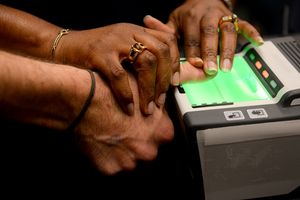Dubai, Jan 8: A Ukrainian airliner crashed soon after taking off from Tehran's Imam Khomeini airport on Wednesday, killing all 176 people aboard, Iran's state television and Ukraine's leaders said.
The Boeing 737 belonging to Ukraine International Airlines crashed near the airport and burst into flames. Ukraine's embassy in Iran, citing preliminary information, said the plane had suffered engine failure and the crash was not caused by "terrorism".
Ukraine President Volodymyr Zelenskiy said there were no survivors.
"My sincere condolences to the relatives and friends of all passengers and crew," Zelenskiy said in a statement, adding that Ukraine was seeking to establish the circumstances of the crash and the death toll.
Iranian TV said the crash was due to technical problems but did not elaborate. State broadcaster IRIB said on its website that one of the plane's two black boxes - the flight data recorder and the cockpit voice recorder - had been found.
Iranian media quoted an Iranian aviation official as saying the pilot of the airliner did not declare an emergency.
There was no official word from Ukraine International Airlines. It was the Kiev-based airline's first fatal crash.
"The fire is so heavy that we cannot (do) any rescue... we have 22 ambulances, four bus ambulances and a helicopter at the site," Pirhossein Koulivand, head of Iran's emergency services, told Iranian state television.
Ukraine's prime minister and Iranian state TV said 167 passengers and 9 crew were on board. Iranian TV said 32 of those on board were foreigners.
Television footage showed debris and smouldering engine parts strewn across a field, and rescue workers with face masks retrieving bodies of the victims.
According to air tracking service FlightRadar24, the plane that crashed was Flight PS 752 and was flying to Kiev. The plane was three years old and was a Boeing 737-800NG, it said.
The model's twin engines are made by CFM International, a U.S.-French venture co-owned by General Electric and France's Safran.
Modern aircraft are designed and certified to cope with an engine failure shortly after take-off and to fly for extended periods on one engine. However, an uncontained engine failure releasing shrapnel can cause damage to other aircraft systems.
A spokesman for Boeing said the company was aware of media reports of a plane crash in Iran and was gathering more information. The plane manufacturer grounded its 737 MAX fleet in March after two crashes that killed 346 people.
The 737-800 is one of the world's most-flown models with a good safety record and which does not have the software feature implicated in crashes of the 737 MAX.
Under international rules overseen by the United Nations, Iran is responsible for leading the crash investigation.
Ukraine would be involved and the United States would usually be accredited as the country where the Boeing jet was designed and built. France, where the engine maker CFM has half its activities, may also be involved.
There was no immediate word on whether the U.S. National Transportation Safety Board would be involved in the probe amid escalating tensions between the U.S. and Iran. The NTSB usually invites Boeing to give technical advice in such investigations.






Comments
Add new comment